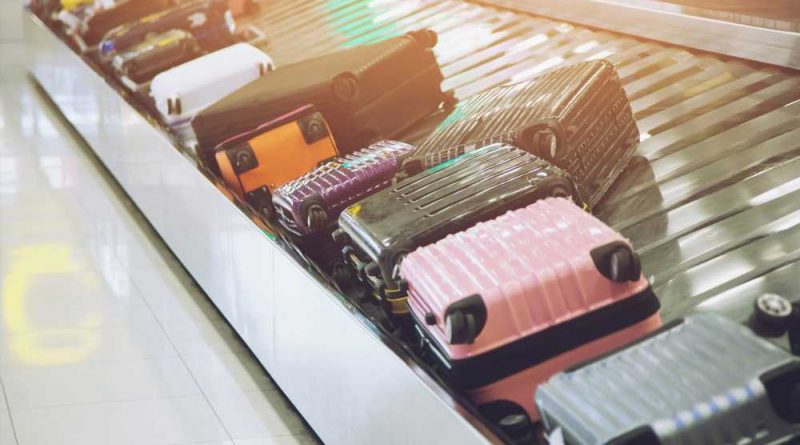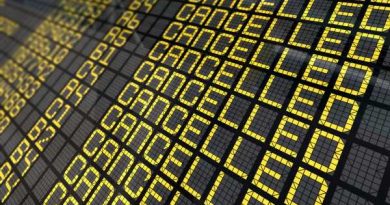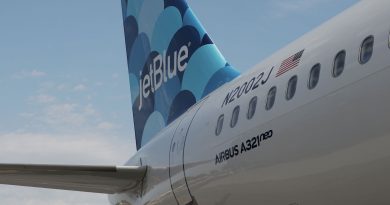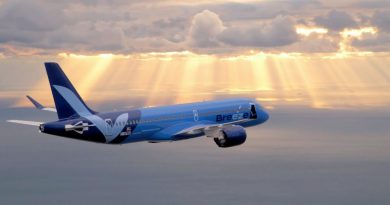DOT proposes airline refunds for delayed bags
New proposals put forward by the Transportation Department would require airlines to refund passengers for delayed baggage and would also require airlines to promptly refund passengers for fees on any ancillary services that the carrier fails to provide.
The DOT formally released the proposals last Friday afternoon, shortly after President Joe Biden signed a sweeping executive order designed to promote competition in the American economy. The order lays out several measures to be taken by the federal government related to commercial aviation, including new consumer protections that are to be afforded to flyers.
Under the DOT proposal, airlines would be required to refund baggage fees when baggage is delayed more than 12 hours on domestic flight or more than 25 hours on international flights. Under existing DOT rules, passengers are entitled to baggage fee refunds only when their baggage is lost.
Related: FAA’s agenda for 2021 includes two changes that are years overdue
The proposal requiring airlines to provide refunds for other ancillary fees states that such refunds should be automatic. The department’s existing rule only requires that airlines refund fees for ancillary services that were not provided because the flight was either canceled or oversold. But under this new proposal airlines would have to provide refunds when services aren’t delivered for any other reason, as well. The DOT cited as an example when a passenger pays for use of the in-flight entertainment system, but the system doesn’t work.
In his July 9 executive order, Biden called for the DOT to take several other steps geared toward consumer protection for air travelers, as well. The order directs the department to improve consumer access to flight information, “so that consumers can more easily find a broader set of available flights, including by new or lesser-known airlines.”
The order also instructs the department to consider, within 90 days, issuing proposed rules that would require airlines and ticket agents to provide consumers with ancillary fee information, including baggage fees and cancellation fees, at the time of a ticket purchase.
In addition, the executive order calls on the DOT to submit a report within 45 days on its progress investigating and taking enforcement action against airlines that failed to provide timely refunds for flights canceled because of the Covid-19 pandemic.
It calls for new appointments, as well as reappointments, to the federal Advisory Committee for Aviation Consumer Protection within 30 days.
And it also calls for greater coordination between the DOT and the antitrust regulators at the Department of Justice to ensure competition in the commercial air market, including the ability of new entrants to gain access to those markets.
On a similar note, the order instructs the DOT to consider measures to support more gate access and competition at capacity-constrained airport.
Finally, the order calls for the DOT, within 60 days, to start development of proposed amendments to regulations completed in late 2020 that codified the meaning “unfair and deceptive practices” in the airline industry.
That 2020 rule drew praise from the airline industry and ASTA but scathing criticism from consumer advocates.
Moves draw praise from consumer advocates
The various Biden administration actions have drawn praise from consumer advocates, but mixed reactions from airlines.
“After years of the powerful airline industry getting everything it wants at the expense of consumers, the administration and DOT’s actions are a long-awaited breath of fresh air for the flying public,” said Kurt Ebenhoch, executive director of Travel Fairness Now. “The airline industry is less competitive than at any time since deregulation and these commonsense consumer protections will start us down the path of restoring fairness for travelers.”
The National Air Carriers Association, which represents discount airlines, including Spirit, Frontier, Allegiant and Sun Country, also applauded the executive order, especially the measures related to competition.
“We particularly welcome the review of policies that have prevented millions of working families in the largest and most concentrated markets from accessing rock-bottom fares and expanded service options to smaller and rural airports and popular leisure destinations,” the organization said.
However, Airlines for Americas (A4A), which represents major U.S. carriers, among them American, Delta, United and Southwest, released a statement defending the “vigorous competition” in the U.S. airline industry. In 2019, A4A said, there was an average 3.46 competitors on all reported domestic U.S. itineraries, compared with 3.33 in 2000.
And this year, the low-cost carriers Avelo and Breeze have launched.
“Robust competition in the U.S. airline industry has generated unprecedented levels of affordability and accessibility, benefitting the customer at every level. There are few industries that match the airline industry’s record when it comes to consumer choice, which is why air travel has transitioned from a once-in-a-lifetime opportunity to an indispensable freedom enjoyed by the vast majority of Americans from diverse economic, cultural, racial and geographic backgrounds,” A4A said.
Source: Read Full Article



